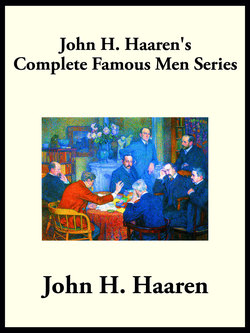Читать книгу John H. Haaren’s Complete Famous Men Series - John H. Haaren - Страница 33
На сайте Литреса книга снята с продажи.
Ptolemy
ОглавлениеOne of Alexander’s favorite generals was Ptolemy. In the division of the Empire Egypt was placed in his charge. Other parts of the Empire were intrusted to other generals. One had Macedonia, another Thrace, another Syria. At first they ruled as governors for Alexander’s young son, but after a while they became independent and were called kings.
Ptolemy and his descendants ruled Egypt for more than three hundred and fifty years. They were a great line of sovereigns and did much for the good of the country. We are accustomed to think of them as Egyptians, but really they were Greeks living in Egypt.
One of Ptolemy’s first acts, and one which shows that he was a man of affectionate feeling, was to bring the body of Alexander from Babylon to Egypt. It was first buried in Memphis but afterward removed to Alexandria, because, as you remember, this city was founded by Alexander and named after him.
Ptolemy made Alexandria his capital and did a great deal to beautify the city. He founded a museum and began collecting books for a library.
His son, Ptolemy Philadelphus, carried on this work and made the library the largest and best in the world. Most of the books were made of the pith of the papyrus or paper plant, of which you have read in the story of Pisistratus. They were written in Greek and Latin.
Ptolemy appreciated the intelligence and learning of the Jews and treated them with so much kindness and gave them so many liberties that great numbers of them settled in Egypt.
Two things that Ptolemy Philadelphus did are especially worth remembering. One was to cause the Bible of the Jews to be translated into Greek; the other was to open again a great canal which had been dug many centuries before from the Nile to the Red Sea, but had long been filled up by the drifting sand of the desert. This was something like the cutting of the Suez Canal.
Ptolemy’s canal connected the Atlantic with the Indian Ocean. Ships could sail from the Atlantic across the Mediterranean, then through the canal and the Red Sea, and on to India.
At that time Egypt raised more wheat than any other country in the world, so she had a great commerce. In exchange for her wheat she bought the products of Europe and Asia, and Alexandria became the richest city of the world.
But, more than that, the Ptolemies, especially Philadelphus, invited learned men to their court and gave them support so that they might carry on their own studies and teach others.
At one time there were 14,000 students receiving instruction in the city. Thus Alexandria became the home of learning. It was there that pupils were first taught that the earth is round, and one of the great astronomers who lived there found out very nearly the length of the earth’s circumference and diameter.
The people of Alexandria knew more about these things two hundred years before Christ than the people of Europe did a thousand years after. The science of to-day about which you hear so much is only the continuation of what was begun by the wonderful Greeks whom the Ptolemies gathered about them in Alexandria.
One of the Ptolemy line was the celebrated Cleopatra, an able ruler and the most fascinating woman of her time. You will read something of her history in “Famous Men of Rome,” a companion volume to this book.
